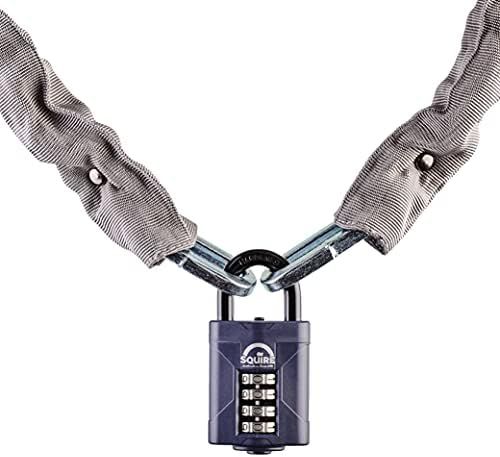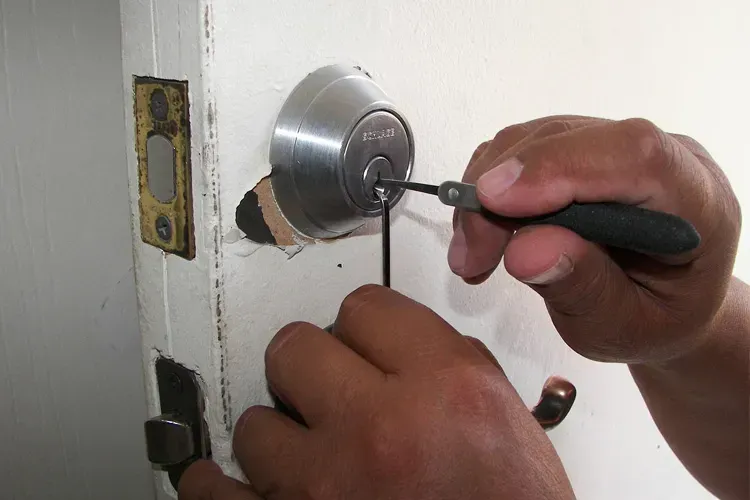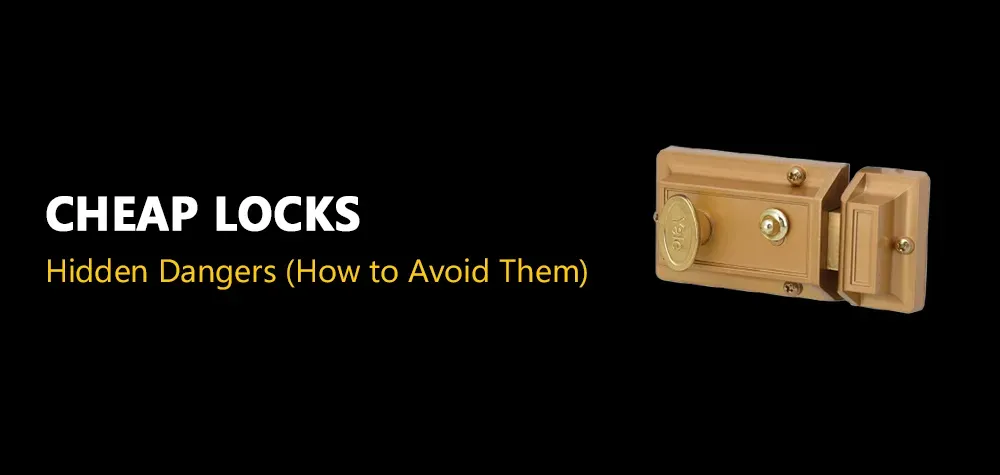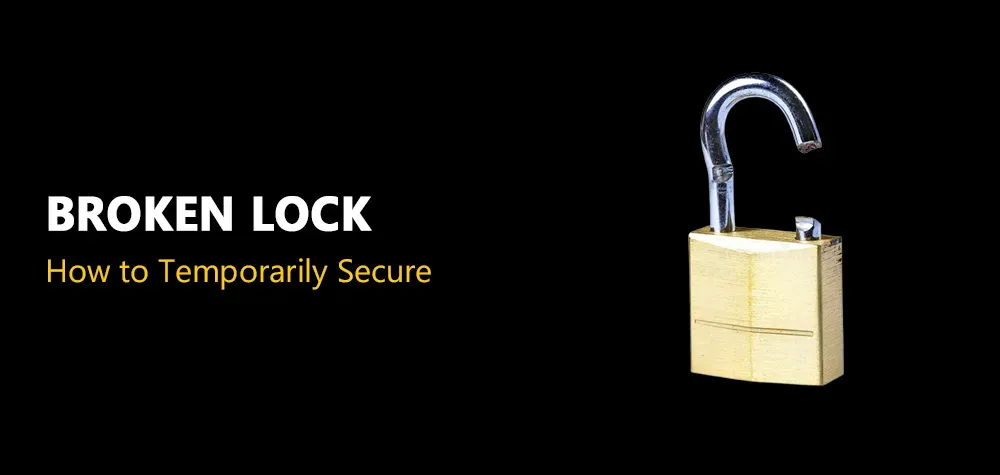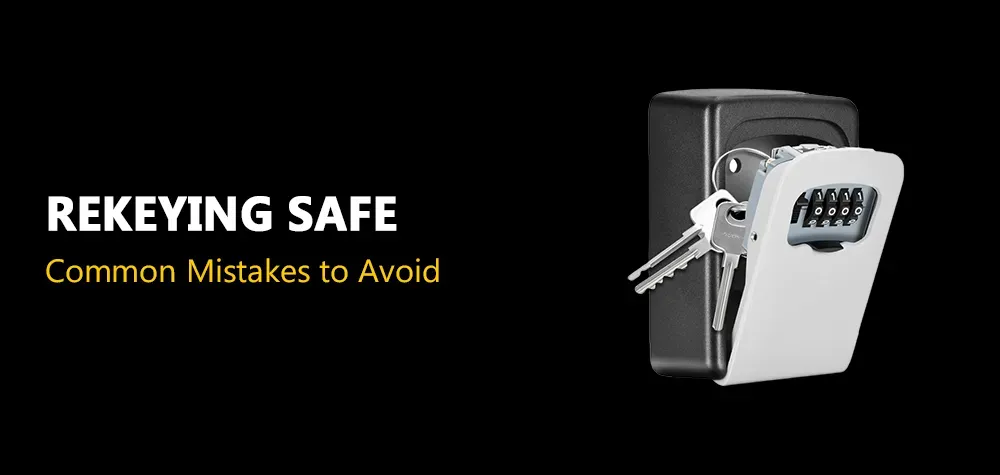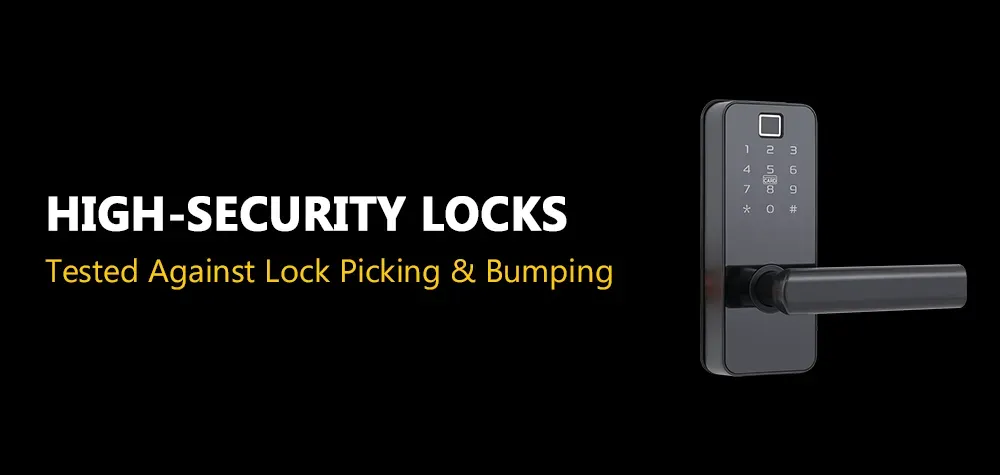Types of Deadbolts and How to Choose the Right One for You
Welcome to our comprehensive guide on deadbolts, where we delve into the various types available to help you make an informed decision for bolstering your home security. A crucial component in safeguarding your property, deadbolts offer enhanced protection against intruders. From single-cylinder to double-cylinder, interconnected, and smart deadbolts, each type comes with its unique features and advantages.
Understanding the distinctions is key to choosing a deadbolt that aligns with your specific security needs. Our expert insights will walk you through the intricacies of each type, shedding light on their mechanisms, durability, and installation requirements. Whether you're a homeowner or a renter, this guide aims to empower you with the knowledge to fortify your doors effectively. Make the right choice in securing your home with the perfect deadbolt – an investment in peace of mind and safety.
Single-Cylinder Deadbolt
The Single-Cylinder Deadbolt stands as a classic and widely used option in home security. Operated by a key on the outside and a thumbturn on the inside, it provides simplicity and convenience. Ideal for residential doors, this type of deadbolt offers effective protection against unauthorized entry. Its straightforward design and easy installation make it a popular choice for homeowners seeking a reliable and straightforward security solution. Discover the benefits and considerations of the Single-Cylinder Deadbolt to make an informed decision for your home.
Double-Cylinder Deadbolt
The Double-Cylinder Deadbolt offers an additional layer of security by requiring a key for both sides of the door. This design prevents intruders from easily unlocking the door even if they break a nearby window. While providing heightened protection, it's important to consider safety measures, as it can pose challenges during emergencies when a key might be needed for quick exit. This deadbolt type is often recommended for doors with glass panels to prevent intruders from reaching inside to unlock. Explore the features and considerations of the Double-Cylinder Deadbolt to determine if it's the right choice for balancing security and safety in your home.
Electronic Deadbolt
Embrace the cutting-edge security offered by the Electronic Deadbolt, a modern solution that eliminates the need for traditional keys. Operated through a keypad or touchscreen, this deadbolt type provides convenient access control, allowing you to set personalized entry codes for family members, friends, or service providers. Some models even offer remote access via smartphone apps, enhancing home security with advanced technology. Explore the key features and considerations of Electronic Deadbolts to integrate smart and secure access to your home. Discover the ease and sophistication of keyless entry while ensuring a high level of protection for your household.
Smart Deadbolt
Step into the future of home security with the Smart Deadbolt, an innovative solution that seamlessly merges convenience and cutting-edge technology. This advanced deadbolt type integrates with smart home ecosystems, allowing remote control via smartphone apps or voice commands through virtual assistants like Alexa or Google Assistant.
Enjoy the flexibility to grant access to guests, receive real-time activity alerts, and monitor your door's security status from anywhere. Some models even feature biometric authentication, adding an extra layer of personalization and security. Dive into the world of Smart Deadbolts, explore the myriad features, and elevate your home's protection with the sophistication of smart technology. Experience the peace of mind that comes with knowing your home is secure, all at the tip of your fingers or the sound of your voice.
Mortise Deadbolt
A mortise deadbolt is a robust and secure door locking mechanism that is embedded, or mortised, into the door itself. This type of deadbolt provides enhanced protection against forced entry due to its design, which makes it more resistant to tampering. The mortise deadbolt is typically installed within the door, offering a sleek and streamlined appearance while maintaining a high level of security. Its construction involves a complex system of components, including a heavy-duty bolt that extends into the door frame, ensuring reliable protection for residential or commercial spaces.
Rim Deadbolts
Rim deadbolts are key-operated locks designed for external doors, providing an additional layer of security. Mounted on the surface of the door, these deadbolts feature a horizontal locking mechanism that engages with the door frame. This design facilitates straightforward installation and is often used as a supplementary lock. Rim deadbolts are known for their simplicity and durability, offering effective protection against unauthorized entry. Their user-friendly nature and reliability make them a popular choice for residential and commercial applications, enhancing overall security measures for exterior doors.
Vertical Deadbolts
A vertical deadbolt is a type of door lock that operates with a vertical bolt mechanism. Unlike traditional horizontal deadbolts, the bolt in a vertical deadbolt moves vertically into the door frame, enhancing security. This design provides an additional layer of protection against forced entry, as the bolt engages more deeply into the strike plate. Vertical deadbolts are often chosen for their robust construction and resistance to tampering. Their installation typically involves placing the lock above the doorknob, offering reliable security for both residential and commercial doors.
What to Consider When Choosing a Deadbolt Lock
When selecting a deadbolt lock, several factors should be considered to ensure optimal security for your property. Firstly, examine the lock's grading, typically measured by the ANSI (American National Standards Institute). Higher grades indicate greater durability and resistance to tampering. Consider the type of deadbolt - options include single-cylinder (keyed on one side, thumb turn on the other) and double-cylinder (keyed on both sides). Assess the material and finish for durability and aesthetics, and confirm that the lock complies with local building codes. Additionally, prioritize features like drill resistance and anti-pick technology for enhanced security. Finally, professional installation is crucial for the lock's effectiveness.
DIY Vs. Hiring a Pro
Choosing between DIY and hiring a professional for tasks like installing deadbolt locks involves weighing various factors. DIY projects provide cost savings and a sense of accomplishment, but may lack the expertise a professional brings. Installing a deadbolt requires precision to ensure proper alignment and security. Professionals possess the necessary skills to handle complexities and ensure compliance with safety standards. On the other hand, DIY enthusiasts can benefit from learning valuable skills and customizing installations. Consider factors such as experience, time constraints, and the complexity of the task when deciding between a DIY approach and hiring a pro for deadbolt lock installation. So, the average cost to hire a locksmith is about $150.
What Deadbolt Grade Should I Choose?
Consider the ANSI grading system, which ranges from Grade 1 (highest) to Grade 3. Choose a deadbolt with a grade that aligns with your security needs. Higher grades offer better durability and resistance to tampering.
Single-Cylinder or Double-Cylinder: Which is Safer?
Single-cylinder deadbolts have a key on one side and a thumb turn on the other, while double-cylinder deadbolts have keys on both sides. The choice depends on your preference and local building codes. Double-cylinder locks may enhance security but can pose safety concerns during emergencies.
Can I Install a Deadbolt Myself or Should I Hire a Professional?
While DIY installation is possible, hiring a professional ensures precise placement, compliance with safety standards, and proper functioning. Consider your level of expertise, time constraints, and the complexity of the installation when deciding between a DIY approach and professional assistance.
Call Us Any Time!
